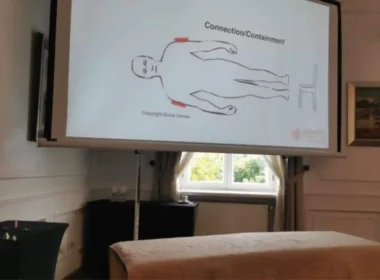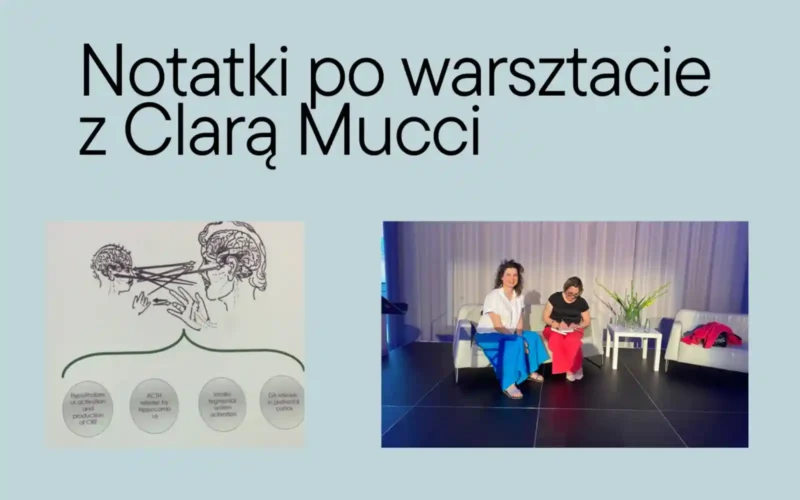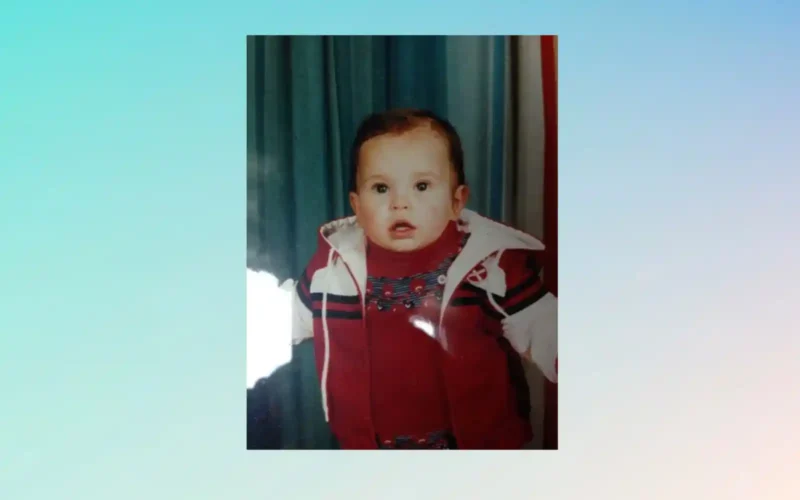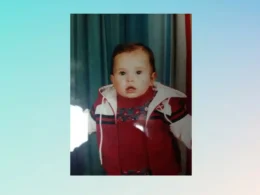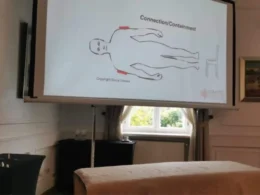When asked where to train in developmental trauma, I can safely answer that it is with interpersonal neurobiologists and neuropsychoanalysts (and that these two psychological environments speak in surprisingly similar voices about what constitutes our developmental stuckness and developmental flourishing). Neurobiology and psychoanalysis allow us to go beyond the level of symptoms and enter the level of understanding the deeper developmental structure that constitutes the deficit and potential of the person we work with.
Clara Mucci is a renowned psychoanalyst, EMDR therapist and author of outstanding books on complex and borderline trauma therapy (you may have heard of her book “Borderline Bodies”). At the Poznań workshop (on the occasion of the 20th anniversary of the Humani Studio), she told us with passion and emotion about the intersection of contemporary psychoanalysis and neurobiology, enriching her lecture with clinical examples and very practical therapeutic tips (including the frequency and form of sessions in complex trauma therapy). .
Here are some important thoughts from the workshop:
human development is always relational and happens in dyads; our growth always happens thanks to another person’s contribution to our well-being (or just the opposite);
our higher mental functions (symbolization, reasoning, gratitude, determination) are not innate, they are largely interpersonal;
during adolescence, a development window opens in which we can “repair” the developmental/attachment deficits of the first two years of life (or deepen them);
let’s listen carefully to patients’ stories and the developmental moment from which these stories come;
important diagnostic question: “what kind of child was the patient and in whose hands was this child’s life entrusted?”
“Were borderline patients born that way, or were they influenced by the disorganized system in which they grew up? This is an important question to ask yourself when conducting their psychotherapy.”
borderline personality organization is much broader than the borderline personality disorder described in the DSM;
symptoms are our body’s way of self-regulating (which, unfortunately, is not good for our well-being);
relationship with food is our relationship with the source of life/vitality;
“is the patient in touch with the emotions that have structured his life?”
“our sexuality is the icing on the cake of our entire identity. In order to fully define it (sexuality), we must first tidy up the cake.
a truth that is too terrifying for the head to think must be dissociated;
dissociation always appears only as a result of trauma compounded from person to person; if dissociation appears as a result of another trauma (e.g. trauma of natural disasters), it is always related to previous attachment disorganization or serious interpersonal trauma (Giovanni Liotti, among others, wrote about this);
the third generation after mass trauma (war, genocide, persecution) suffers the most; “so always ask your patient about the experiences of three generations”
when a child is born, the experiences of three generations are activated; the birth of a child activates our (the parent’s) attachment patterns;
as much as 80% of the cortisol secreted in the mother’s body in the last 3 months of pregnancy crosses the placenta and reaches the body of the child/fetus (Ammanitii, Gallese, “The Birth of Intersubjectivity: Psychodynamics, Neurobiology, and the Self”).
dreaming says a lot about the structure of our personality;
to recover from complex trauma, you need an embodied witness;
“To experience resilience, we need trust and hope” (Jaak Pankseep).
It was a beautiful workshop! I will be metabolizing its content for a long time. And I highly recommend the wonderful books by Clara Mucci!





